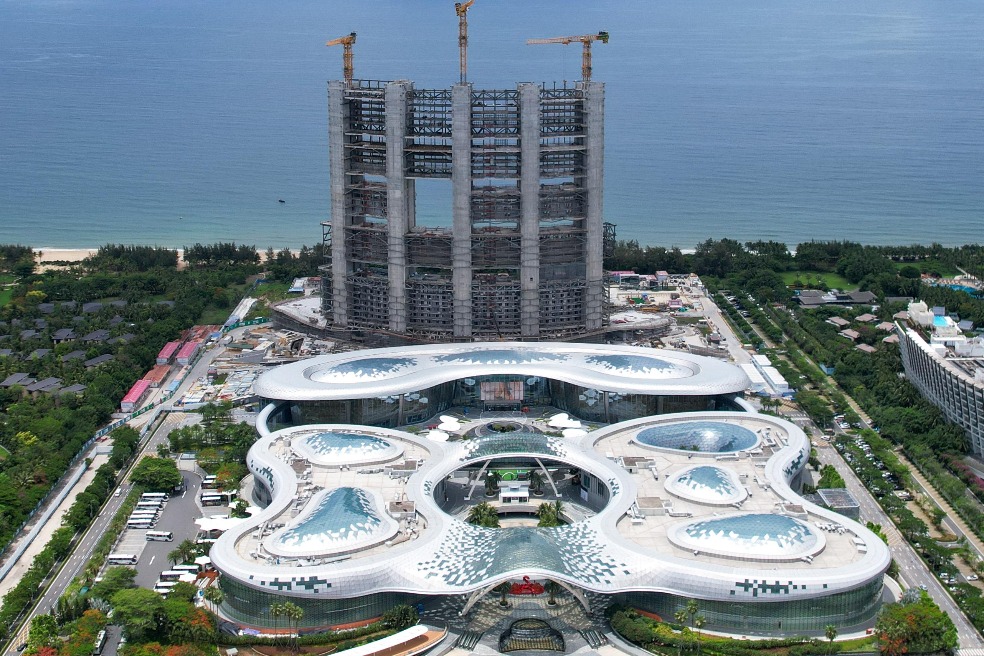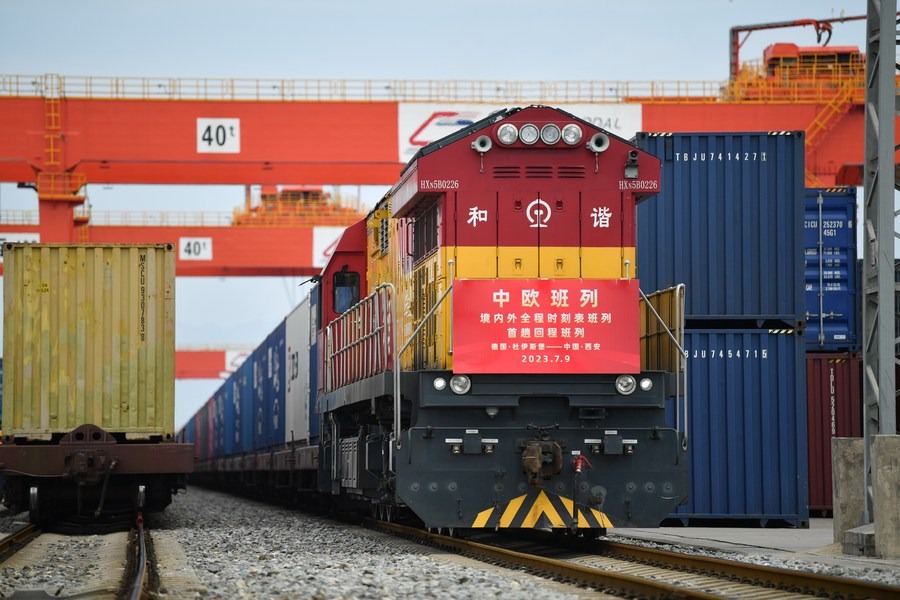Foreign investment crucial for economic growth


In his video address at the Global Trade in Services Summit on Saturday, President Xi Jinping emphasized the importance of expanding the services sector and fostering global cooperation to drive global economic recovery. He also encouraged the development of new technologies and innovative business models.
On Aug 13, the State Council, China's Cabinet, issued a document titled the "Opinions on Further Optimizing the Business Environment for Foreign Investment and Increasing the Attraction of Foreign Investment", which outlined 24 policy measures across six areas.
Although these measures reflect China's commitment and determination to promote high-level openness, they should be implemented in a way that they can achieve effective results.
Since the further improvement in the business environment will increase China's appeal to foreign companies, the government should focus on facilitating the cross-border flow of capital, labor, technologies and data to integrate domestic production factors, and advanced technology and management with those of the rest of the world. For that, the government has to expand channels to attract foreign investment, implement some favorable policies to attract foreign executives, high-tech talents and their families to enter and exit China more conveniently, support foreign-funded research and development centers, and ensure the orderly and secure flow of data.
Efforts should also be made to strengthen relations between China and foreign investors, including normalizing exchanges at different levels between Chinese and foreign governments and enterprises. There is a need to advance institutional openness, too, by promoting fair competition, providing better protection to intellectual property rights, and according national treatment to foreign-invested enterprises, and aligning and integrating the domestic business laws and regulations with international business laws and regulations.
To achieve that, the government needs to coordinate with regional and global trade organizations such as the Comprehensive and Progressive Agreement for Trans-Pacific Partnership and the Digital Economy Partnership Agreement. It should also make efforts to play a bigger role in formulating global governance rules on cross-border trade.
These efforts will facilitate the integration of foreign-invested enterprises into the Chinese market. The measures outlined in the "Opinions on Further Optimizing the Business Environment for Foreign Investment and Increasing the Attraction of Foreign Investment" are aimed at attracting more foreign investment to China. Policy stability and predictability impact both existing and new foreign investments. To maintain and expand foreign investment, China needs to focus more on "policy formulation, implementation and adjustment", using diverse measures to help the world better understand China's economic system and how it can benefit them.
In terms of formulating key policies, China should improve certain systems and establish effective market mechanisms to ensure foreign investors that their investments will yield healthy returns. But the emphasis should always be on maintaining fair market competition, which can be done by better regulating foreign trade and economic policies, and drafting laws and regulations related to support policies and competition neutrality.
It is also important to expand the pool of experts by including international and domestic professionals to ensure policies that are formulated succeed in attracting more foreign investments and businesses.
When it comes to implementing key policies, it is crucial to optimize the process of implementation, by reducing the additional institutional costs some foreign enterprises would have to unnecessarily bear, and improve the rules and regulations on the responsibilities of foreign-funded enterprises. For instance, the government should make clearer the rules on the pilot program for further opening up the service sector, further improving the "Qualified Foreign Limited Partner" foreign exchange management facilitation system, and specifying the criteria for "production within China's borders".
This will help foreign-invested enterprises to conduct their business more smoothly.
While policy adjustments and transparency should always be maintained, a system that allows foreign-invested enterprises' opinions to be heard and take corrective measures, if necessary, should be established. Also, policies should be implemented to grant foreign-invested enterprises a transition period to adjust their production and operations.
China's fast-paced economic growth, vast market and complete industry chain are critical factors that make China an attractive investment destination. Yet China needs to further improve its business environment to attract more foreign investment. To do so, the government has to take measures to ensure foreign investments yield healthy returns; and for that the government has to ensure healthy economic growth in the future.
As for the industrial sector, the government should intensify efforts to attract foreign investment in key areas and encourage foreign enterprises to more deeply engage in the high-tech and commodity markets, especially because foreign enterprises' involvement will enrich sectors such as biomedicine and modern services.
The State Council document encourages foreign enterprises to collaborate with vocational colleges and training institutions, too, to promote advanced manufacturing, modern services and the digital economy, and build a pool of new types of skilled workers.
China's robust supply and industry chains have benefited from economic globalization and have been contributing to global economic growth. And foreign enterprises' participation in the Chinese market can play an important role in a new development pattern characterized by the "dual circulation" development paradigm, in which the domestic and overseas markets reinforce each other, with the domestic market being the mainstay.
In other words, China should not only implement policies to attract more foreign investment to boost growth, but also take measures to ensure foreign investment helps support development in the country's less-developed areas. This will sharpen the competitiveness of foreign enterprises and contribute to the coordinated development of different regions and industries in China.
Chen Yihao and Pan Yuanyuan are researcher fellows at the Institute of World Economics and Politics, Chinese Academy of Social Sciences.
The views don't necessarily represent those of China Daily.

































